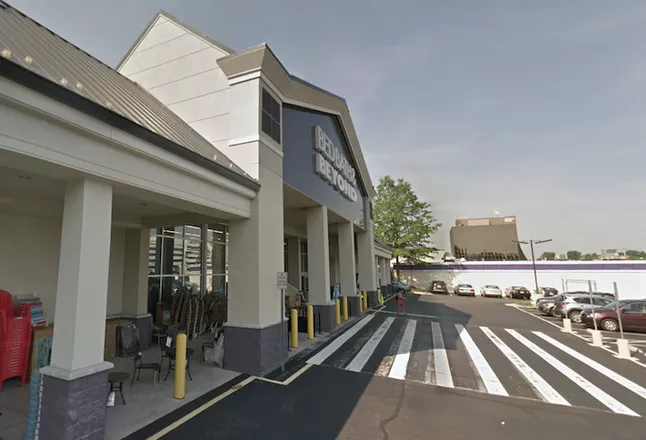Impact Fees, Code Upgrades and More
Restaurateurs generally fall under two different camps when looking to open a restaurant. Independent and first-timers typically look to acquire a location with an existing kitchen and restaurant infrastructure.
Multi-unit chain tenants and franchisees will usually secure raw space and build-out the store to meet their standard prototype design. Both types of restaurateurs are at risk of incurring substantial costs if they are not familiar with the lease or purchase process.
While some of the hidden costs can affect both lessees of commercial properties and buyers of existing restaurants, some are more specific to each.
Impact Fees
Impact fees are charged to a developer for new real estate developments. The burden of the impact fees is typically placed on the developers, but many savvy developers have learned to pass these costs on to their tenants.
Depending on the space they will be leasing, the tenant typically will pay for specific impact fees associated with the specific operations of their restaurant. If the developer has planned for specific commercial space(s) to be for restaurant use before any tenants occupy, the city may include the impact fees beforehand to a certain extent.
Once a tenant applies for their own specific permits, the city will review what (if any) fees were charged for the space already and add any new changes to the tenant for new equipment that will have more of an impact on the space than it had before. One of the main reasons the city charges these fees is that they understand that a restaurant use will have more impact on the sewer/water system than a non-food retail/service shop.
For tenants, there is no standard specific formula as to how they are charged as every city is different. In City of Los Angeles for example, impact fees are charged according to the number of proposed seating, whereas in another city, the cost is calculated per square footage.
Impact fees can run into the tens of thousands of dollars. It’s important to know what impact fees have been paid by the developer, and advisable to have specific language in the lease to prevent the developer from passing along these fees to the tenant. If the tenant agrees to absorb the cost of any impact fees, it is important to determine the cost upfront to avoid going over budget.
Hidden Costs when Buying a Restaurant
Most restaurateurs that purchase an existing restaurant are looking to save money and time required to build-out a raw space. Many buyers assume because the restaurant has been in business for a while, the restaurant meets current building codes.
ADA & code upgrades
Since the code cycles change every couple of years and cities usually adopt amendments yearly, a restaurant that was approved five years ago may not be fully in compliance to today’s standards.
Many buyers need to make changes to the space, and such improvements may trigger expensive code upgrades. In addition, we have seen restaurateurs lose their liquor license because they were not aware that the prior owner reduced the size of their space in the past and no longer had the required number of restrooms.
If you are buying an existing restaurant, we highly recommend retaining an experienced architect to perform due diligence on the space. Additionally, with the increase of American with Disabilities Act (ADA) lawsuits filed over the past couple of years, we recommend that an accessibility expert, such as a accessibility-certified inspector, be brought on during the due diligence phase to review and point out any potential ADA deficiencies that can make the new owner susceptible. Along with Federal accessibility regulations, different states have varying bills in place to assure accessibility.
Hidden Costs Affecting Both Buyers and Tenants
Options to extend: Having the right to extend the term of your lease is an important factor for most business owners. Although many tenants fight hard for the right to extend their lease and the amount of rent to be paid during the option terms, most tenants are unaware of the key deal points when negotiating options to extend. Most commercial leases state, “Options are personal to tenant.” This has the effect of canceling the right to exercise your option if you assign the lease. If you plan to sell your business, having the right to extend your lease can make or break the sale of your business and the price you receive.
Many lessors have extorted money from a tenant trying to sell their business and not realizing their option was void.
Another key issue is the effect of defaults on your option to extend. Many leases will state that upon certain defaults, the options shall become void. Negotiating precise language maintaining your rights so long as you cure such defaults is an important step in preserving your options.
Lease assignments, subleases, and profit share: Assignment is the transfer to another party of all of the tenant’s interest in the lease for the remainder of the lease term. Assignment rights are one of the most important terms to understand and negotiate.
An assignment provides the ability to get out of a lease early or to sell your business. Most assignment clauses contain many conditions that must be approved by the landlord, and some give the landlord the sole decision to approve or disapprove the assignment.
Furthermore, some assignments do not release you from your lease obligation. A properly drafted assignment provision provides an exit strategy and can make a huge difference in the valuation of your business if you plan to sell.
Many leases contain vague language that provide the lessor anywhere from 50 percent to 100 percent of any profits. Although this is typically meant to protect lessor if the tenant were to sublease the property and collect a higher rent than the current lease, this clause can be enforced to keep all of the seller’s profits upon a sale of the assets and assignment of lease.
This article covers a few of the issues that are commonly overlooked when purchasing or leasing a property for restaurant use. Building the right team of experienced attorneys, architects and restaurant real estate brokers can be the difference between a smooth opening and huge budget overruns.






